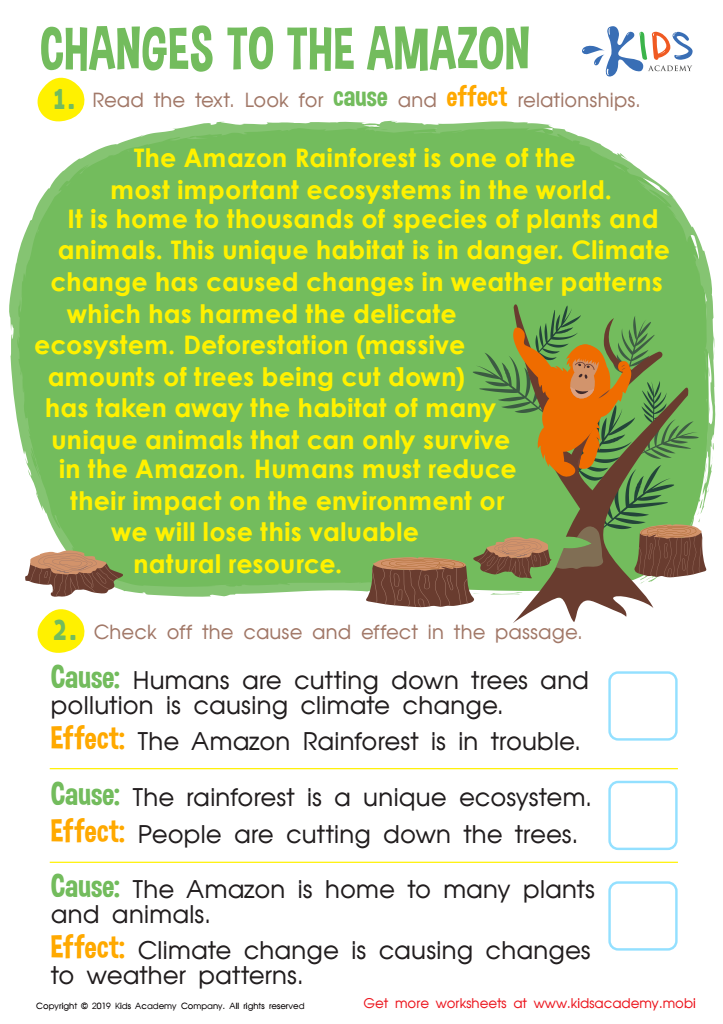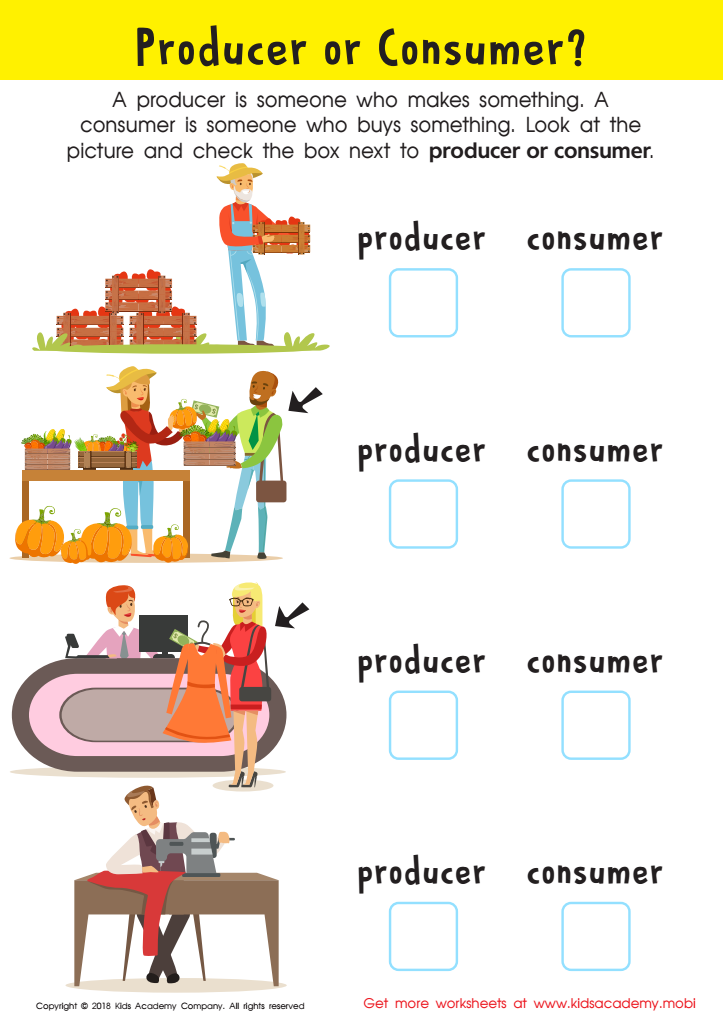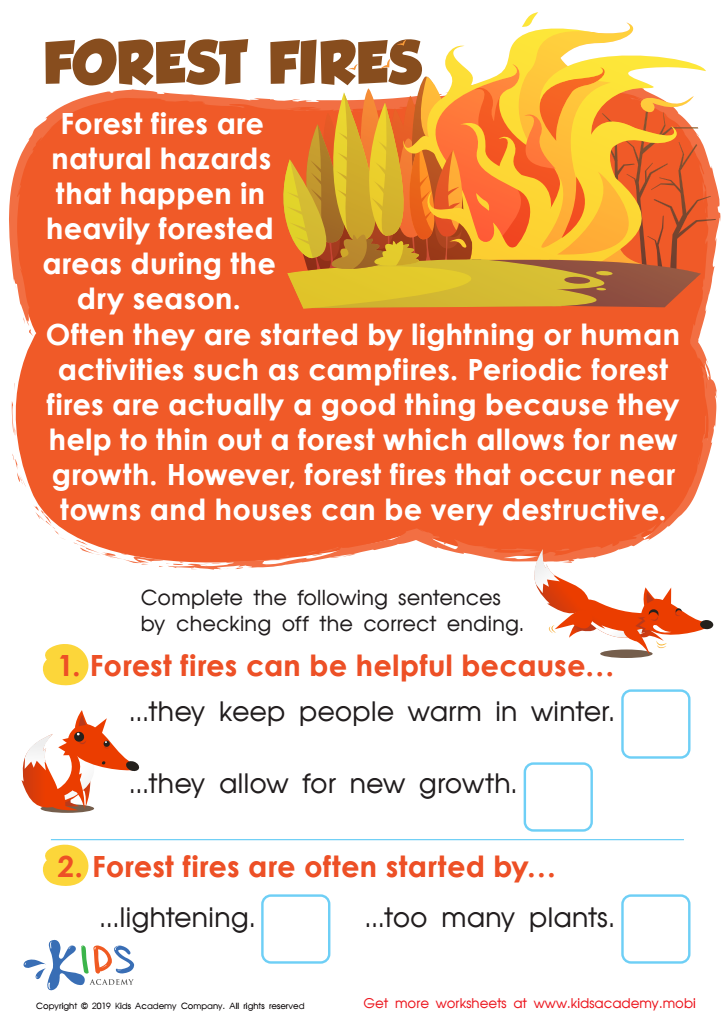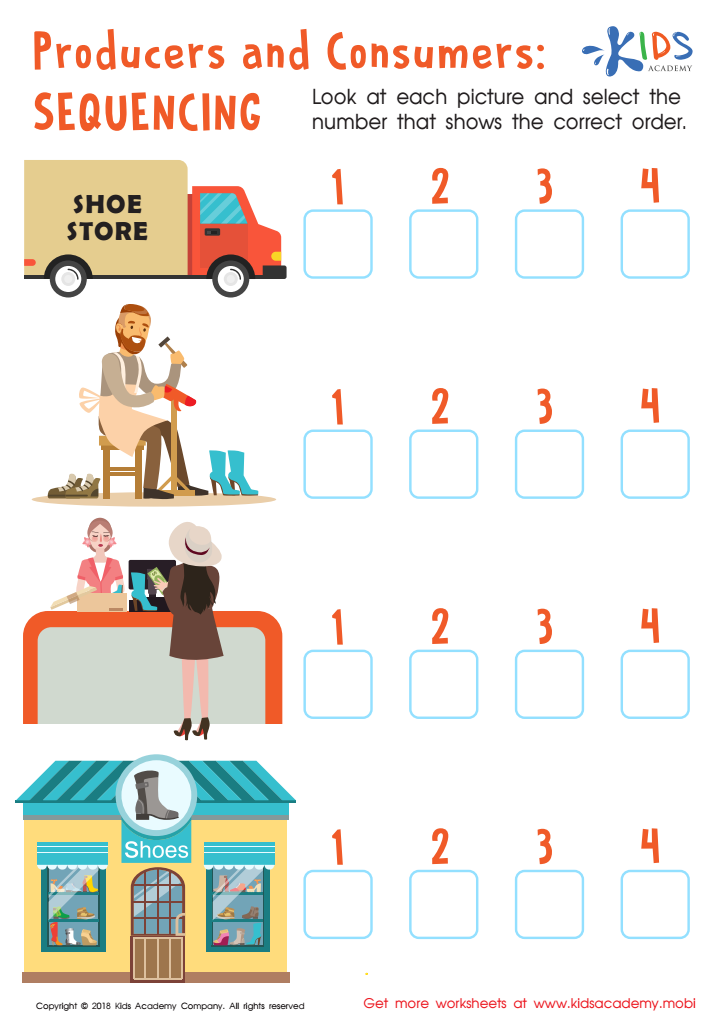Understanding ecosystems Worksheets for Ages 7-9
7 filtered results
-
From - To
Explore the wonders of nature with our "Understanding Ecosystems Worksheets for Ages 7-9"! Perfect for young learners, these engaging resources help children grasp the essential aspects of ecosystems. Through fun and educational activities, kids will learn about different habitats, the relationships between living organisms, and how ecosystems function. Our worksheets are designed to captivate curious minds and build foundational science skills, making learning interactive and enjoyable. With colorful illustrations and hands-on exercises, students will develop a deeper appreciation for the environment. Empower your child to become a budding ecologist with our expertly crafted worksheets today!


Changes to the Amazon Worksheet


Producer or Consumer? Worksheet


Ecosystems: Assessment 1 Worksheet


Forest Fires Worksheet


Ecosystems: Assessment 2 Worksheet


Animals and Plants: Assessment 1 Worksheet


Producers and Consumers: Sequencing Worksheet
Understanding ecosystems is crucial for children aged 7-9 as it lays a solid foundation for future learning and nurtures an early appreciation for our natural world. At this developmental stage, children are naturally curious and more receptive to exploring complex concepts when presented in a simple and engaging manner. Ecosystems education helps them understand the interconnectedness of plants, animals, humans, and the environment, fostering a sense of responsibility and stewardship towards nature.
Teaching about ecosystems equips young minds with critical thinking skills. Children learn about cause-and-effect relationships, ensuring they understand how their actions impact the world around them. This early education promotes sustainable practices, making children more conscious of recycling, conserving energy, and protecting wildlife.
Moreover, understanding ecosystems can enhance observational skills and encourage outdoor activities, combating the sedentary lifestyle often brought about by excessive screen time. Children who spend time observing nature develop better cognitive abilities and mental well-being.
Finally, early education about ecosystems aligns with subjects such as science and geography, enriching the broader curriculum and helping children make informed decisions in the future. By instilling a love and understanding of ecosystems early on, parents and teachers are cultivating environmentally responsible individuals who are more likely to contribute positively to society and our planet’s future.
 Assign to My Students
Assign to My Students





.jpg)












